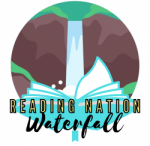By Bryanna Hensley, Graduate Assistant
The Reading Nation Waterfall Replication Toolkit stands as a vital resource for libraries, demonstrating how to align learning experiences with educational principles and theories. The initiative addresses literacy barriers in Native American communities by implementing culturally relevant, accessible, and sustainable book-sharing systems.
The approach integrates collaborative learning by partnering with schools, libraries, and Head Start centers. These partnerships support interactive literacy ecosystems where families and children engage with materials designed to reflect their cultures, fostering not only reading skills but also a deeper connection to their heritage. These efforts are increasingly important for early literacy and giving students a head start in their education.
By focusing on “The Three Legs of the Stool”—Head Start sites, elementary schools, and public or tribal libraries—the initiative creates a strategic framework for equitable access. Libraries are guided to curate collections with “own voices” narratives, provide free resources via Little Free Libraries, and host programs that encourage active learning. These experiences reflect modern educational theories emphasizing inclusion, cultural relevance, and community-driven collaboration.
The program also underscores assessment and adaptability, using data-driven methods to refine services and measure success. By integrating these elements, Reading Nation Waterfall exemplifies a library’s role as an epicenter for educational innovation and community growth. This toolkit offers a transformative model for advancing literacy and learning equity across diverse communities.

Libraries are keeping up with culture change, I didn’t realize this.